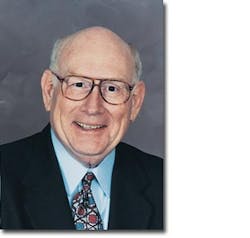Boy was I behind on Puerto Rico. The invitation came from a PR firm for Puerto Rico’s PRIDCO (Puerto Rico Industrial Development Company), inviting aviation press folks to come and see how high tech Puerto Rico is, and how suitable for aviation industries. I went, and it really was eye opening.
I was surprised to find out that Puerto Rico (hereafter referred to as ‘PR’) has any aviation business at all, but they do. So far they don’t make airframes or engines, but Hamilton Sundstrand delivers aircraft climate control and electronic systems to clients such as Boeing. Other companies including Honeywell, Pratt & Whitney (in a joint venture with AXON PR), Hamilton Sundstrand, and Lockheed Martin serve high-tech industries including aviation with “pre-manufacturing activities” such as R&D and design engineering.
Our tour began at PRIDCO headquarters in San Juan, complete with breakfast and more information than Henry Ford and Thomas Edison could have digested at one sitting. I think it could be best described in four steps:
- PR is high tech right now, and poised to become more so.
- PR is part of the U.S. Outsourcing to PR is not like outsourcing to another country, and PR does have much lower labor costs.
- PR gets terrific tax benefits.
- PR is ready and willing to invest in companies that do business in PR.
PRIDCO stresses that PR has a great school, the University of Puerto Rico at Mayaguez, which turns out respected engineers, many of whom work for NASA and other high-tech entities. What’s more, they speak both English and Spanish. The university — which we visited and where we received a presentation by engineering professors — asks employers what their employees need to learn and then add it to the curriculum.
After 9/11, the U.S. came up with ITAR (International Traffic in Arms Regulation). We don’t hear much about that in the States, but it means a lot to PR. Basically, ITAR requires that defense-related materials and information be accessed only by U.S. citizens. That pretty much eliminated outsourcing work on such items to foreign countries with low costs. But PR citizens are U.S. citizens, so outsourcing to PR works well, particularly when combined with other tax advantages.
And PR does offer tax advantages to companies and to citizens. I can’t explain all of them, but if I were starting a new company I’d certainly study them closely.
BTW, the dangdest surprise we received in PR was a demonstration of Hewlett Packard’s Halo -— “a telepresence and conferencing program.” Halo makes it possible to visit face to face in real time with people around the world. We saw it work between PR, Corvallis, OR and Belgium.
Finally, we attended the grand opening of the “new” building (PRIDCO gave them the building and the money to restore it) of AXON PR, a joint venture with Pratt & Whitney.
Puerto Rico is not your grand-father’s territory anymore.





